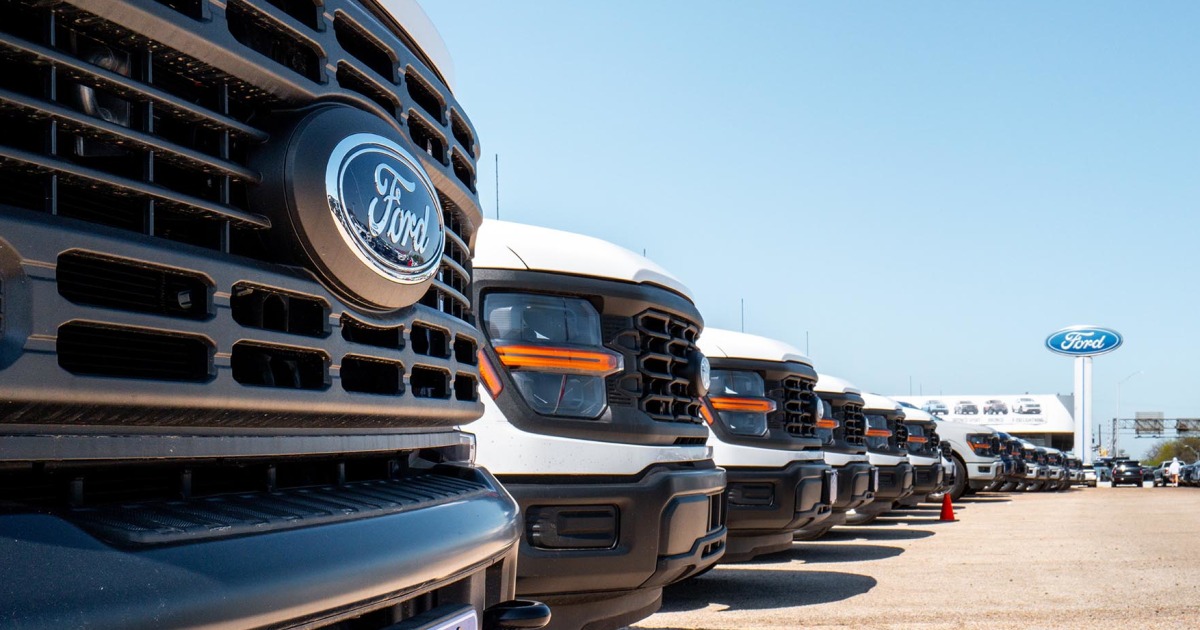Profile
Sections
Local
tv
Featured
More From NBC
Follow NBC News
news Alerts
There are no new alerts at this time
President Donald Trump and the White House announced a series of sweeping tariffs on foreign-made cars and auto parts Wednesday, a prelude to the April 2 “Liberation Day” duties that are expected to hit a wide variety of goods made by many of the largest U.S. trading partners.
Many details remained unclear about the tariffs, which still sparked criticism from foreign governments and hit shares in automakers. Trump’s initial statements about the tariffs were quickly updated by an administration official and a fact sheet posted on the White House website.
Speaking from the Oval Office, Trump initially said he was imposing a 25% tariff on all cars coming into the country. The White House later clarified that foreign auto parts would also be taxed at the 25% rate even if the vehicles they go into are assembled domestically.
However, companies that import vehicles under the United States-Mexico-Canada Agreement (USMCA) will get special consideration until the Commerce Department establishes a process for levying the 25% duties, the White House said.
USMCA-compliant auto parts will remain tariff-free until the commerce secretary, in consultation with U.S. Customs and Border Protection, establishes a process to apply tariffs to their non-U.S. content.
Trump said he expects auto companies to relocate to the U.S. and build new sites or expand existing ones. He hit out at companies that have opened facilities in Canada and Mexico in recent decades, at what he said was the expense of U.S. workers.
“If you build your car in the U.S., there’s no tariff,” he said.
Collection of the tariffs will begin April 3, and Trump said they would be “permanent.” He asserted that the U.S. could end up collecting as much as $100 billion from tariff revenues.
Shares of the top U.S. automakers fell sharply in after-hours trading on the announcement, with General Motors down more than 7%, Ford off 4.6% and Stellantis lower by 4%.
Shares of Asian automakers also fell during trading on Thursday, Reuters reported, with Japanese automakers Nissan, Toyota and Honda closing down 2.2%, 2.7% and 3%, respectively. In South Korea, Hyundai Motor and Kia both fell about 4%.
Jennifer Safavian, president and CEO of Autos Drive America, a trade group that represents U.S. operations of international automakers, said in a statement: “The tariffs imposed today will make it more expensive to produce and sell cars in the United States, ultimately leading to higher prices, fewer options for consumers, and fewer manufacturing jobs in the U.S.”
Foreign leaders and automakers also criticized the tariffs. Japanese Prime Minister Shigeru Ishiba said his government was “putting all options on the table” to respond, while the German Association of the Automotive Industry said the tariffs sent “a disastrous signal for free, rules-based trade.”
Canadian Prime Minister Mark Carney called the tariffs a “direct attack” on Canadian workers and said he was considering additional retaliatory tariffs. European Commission President Ursula von der Leyen said she deeply regretted the U.S. decision and that the European Union “will continue to seek negotiated solutions, while safeguarding its economic interests.”
In a post on his Truth Social platform early Thursday, Trump said, “If the European Union works with Canada in order to do economic harm to the USA, large scale Tariffs, far larger than currently planned, will be placed on them both.”
The American Automotive Policy Council, which represents Ford, General Motors and Stellantis, said that while it was committed to increasing U.S. automotive production, “it is critical that tariffs are implemented in a way that avoids raising prices for consumers.”
Eight of the top 10 “most American” vehicles with U.S.-based parts and assembly are foreign-owned companies, according to Cars.com. Its full list of the most American-made brands can be found here.
“It always surprises car shoppers that the badge on the hood doesn’t always reveal a vehicle’s economic contributions. In fact, 66% of vehicles on Cars.com’s 2024 American-Made Index come from foreign automakers that support communities in Alabama, Indiana, Michigan and Ohio,” Cars.com said in a release last year.
Half of all vehicles sold in the United States in 2023 were imports, according to Cars.com. Popular autos that see some or all models assembled abroad, according to Autoweek, include:
The 25% tariffs will almost certainly increase the cost of the affected vehicles.
“If a 25% tariff is imposed, prices could increase by as much as $12,000 for some models, or as little as $4,000 for others, in both cases a cost that will almost certainly be passed on to U.S. buyers,” Autoweek said.
Alongside Tesla’s assembly plant in Fremont, California, the South has increasingly displaced the Midwest as a growing hub of American auto manufacturing.
The new duties were announced a week before Trump’s planned “Liberation Day” on April 2, when he has promised to roll out a bevy of new tariffs against many of America’s largest trading partners, including longtime allies, that will affect a broad range of goods. Trump had hinted in recent days that a separate statement about auto tariffs could come ahead of next week.
Previously, Trump indicated he was receptive to pleas from U.S. automakers that tariffs would harm their businesses. He gave them a one-month reprieve from duties on Canada and Mexico that ultimately evolved into indefinitely waiving the levies for all items covered by the U.S.-Mexico-Canada free trade agreement.
Trump’s on-again, off-again announcements have roiled markets in recent weeks and ratcheted up uncertainty in the economy. That has led to declining business and consumer confidence.
Rob Wile is a Pulitzer Prize-winning journalist covering breaking business stories for NBCNews.com.
© 2025 NBCUniversal Media, LLC











